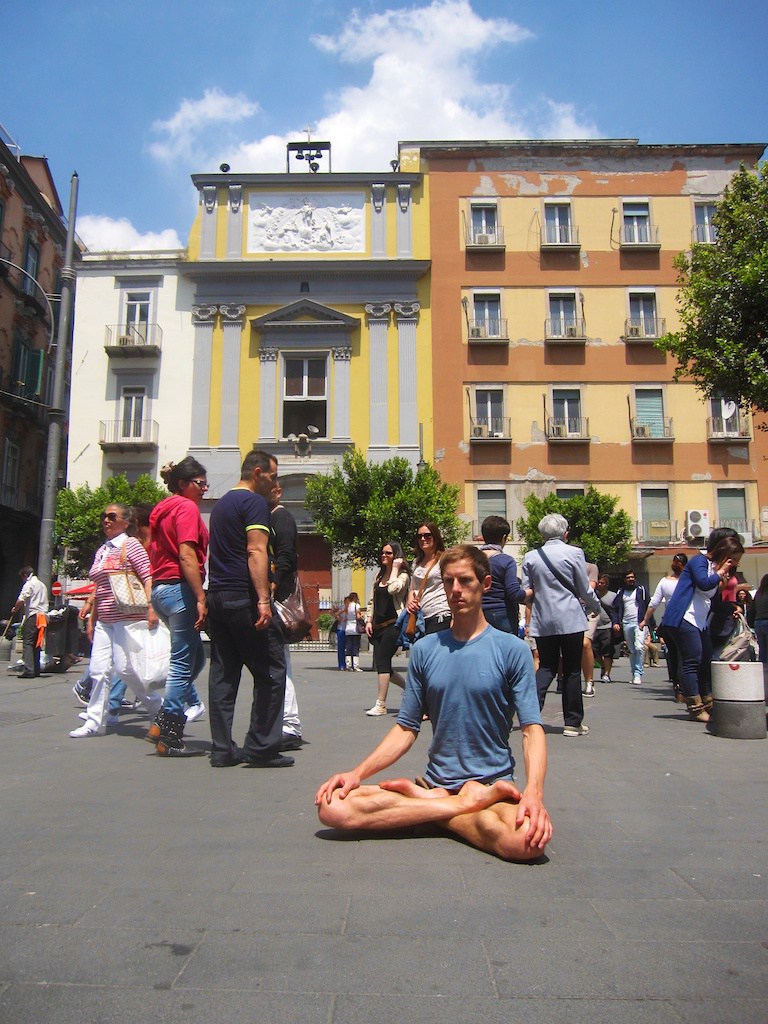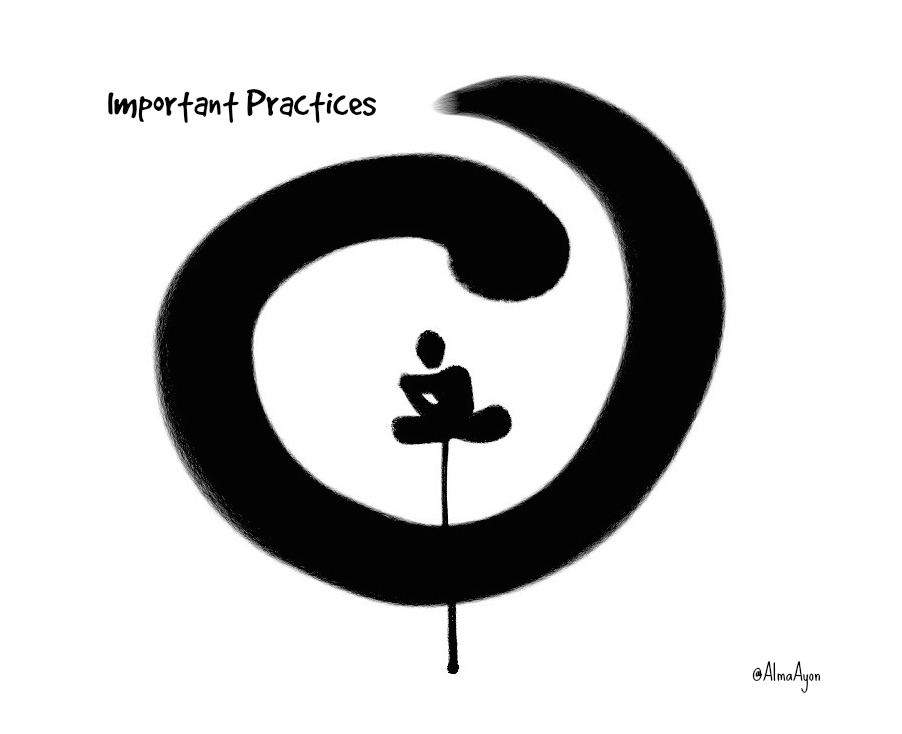by Alma Ayon | Aug 7, 2017 | emotions, wisdom
Our society overestimates productivity, and many people live unhappy by the demand to have to be productive, the consequence of this system is people who get carried away to the extreme of work and stress. Although occupational therapy has its benefits, if we thoroughly analyze the purpose of it, it is to distract the mind with activities and entertainments. On the one hand fulfills its function of removing painful stimuli and focus attention on another activity, but on the other hand it does not allow us to observe the mind and discover its potential to heal, balance and find a happiness that is not based on external stimuli.
Everything in our society is oriented to distract us and entertain us, television, the internet, social gatherings, etc. The consequence of this is that when the human being is alone and without activity that distracts him he begins to become aware of the anxiety, fear, loneliness, depression and other emotions that have been outside the threshold of consciousness while he was distracted. Many can not stand it and run for activities, people and anything that entertains them and distracts them from their great fear: being with themselves, without a stimulus. We have become addicted to activity and this has mental and physical consequences.
As Blaise Pascal (1623-1662) put it: "When I have sometimes set myself to consider the different agitations of men, and the perils and the pains to which they expose themselves in the court, in war, whence arise so many complaints, passions, rash and often wicked enterprises, I have often said that all the misery of man arises from one source, which is, that he cannot remain at rest in a room."
I invite you to learn to be in control of your thoughts and emotions regardless of the circumstance you are in, to train your mind so that you can find peace of mind both in solitude and in company, to become independent. For this I suggest exercises based on mental training and the cultivation of emotional balance. It is to help you direct your attention in a voluntary and sustained way, to teach you to differentiate between reality and the ideas you project about yourself, others and situations, as well as to train your mind to be aware when a destructive emotion begins to emerge, and to be able to release it before entering into the refractory period and have an impulse reaction like that of hurting yourself or others, to help you to cultivate motivations and intentions that guide your life in a constructive direction, as well as the cultivation of empathy for the suffering of others and cultivate equanimity when difficult situations arise in your life, and finally to help you discover that in solitude you can also find peace of mind, clarity and happiness if you learn to observe the flow of thoughts, emotions and mental events that arise, dwell and fade, without clinging to, or identifying with them. Cognitive fusion is the root of the problem and one can be free of it, if one learns to distance oneself from destructive thoughts and emotions.
by Alma Ayon | Jul 20, 2016 | ethics, reflections, wisdom
Today I want to offer you methods and tools with which you can balance different areas of your life; emotional, social, cognitive, etc.
One of the imbalances that we all suffer and yet consider normal is in the attention. Our minds are constantly distracted with thoughts about the past or the future and with an endless inner dialogue. When we are able to stay present and with a silent mind we can concentrate better and experience greater mental clarity. The problem is we do not know how to train our minds to improve attention. Today already in many Western countries are taught the techniques developed in Asia for training this ability.
By being vigilant in the present we can also be aware of thoughts and emotions that we experience habitually and recognize which of those are virtuous and not virtuous. Through methods to develop empathy, compassion, patience, etc. we can also begin to live an ethical life, making us responsible for the impact of our actions and words on others and the environment.
The development of emotional intelligence is crucial as suggested by Daniel Goldman. Since this type of intelligence is leading us to manage our emotions with wisdom and knowledge related to establishing good society, thus opening the doors to reach our goals, to live a meaningful life and bring benefits to our community.
Likewise, the development of wisdom is important for the development of human beings. Not only rational intelligence and emotional, but also a deeper wisdom about the reality of how it is that we exist. Recognizing that we are interdependent with everything around us, that we are impermanent and because of this we can transform ourselves into better people, changing our negative habits and cultivating positive ones. And the wisdom of the awareness that we are going to die and be separated from everything we value and appreciate, which helps us to put our priorities in place and leverage our lives in the best way possible.
by Alma Ayon | Jul 17, 2016 | wisdom
The fundamental nature of the human being is goodness, you and I and almost everyone knows it, but some people have many veils of ignorance that hide their true nature, it's ignorance that makes them feel alienated, locked in a body, fending others and the world, they do not realize that by harming others they harm themselves.
When we recognize our fundamental nature, we eliminate ignorance and ego-clinging. And we recognize that our happiness is tied to that of others.
All this sounds great, and we know it in theory, but how can we start and really transform ourselves? It's not enough to recognize that we have a big ego and that we are dominated by our mental afflictions, we already know, every time we blame, criticize or justify ourselves or others, we know that the ego is in action.
The best way to begin a real transformation is to start watching our minds. Carefully. Unfollow thoughts and bring our attention again and again to the present, to our senses, what we are doing, what we are seeing, feeling, hearing, etc. This is, to start living with full awareness. To see our emotions arise and decide how to react wisely. Cultivating concentration to focus on what it is worthy, cultivating a good heart to help those around us and develop our wisdom.
This process does not happen overnight, nor praying, nor reading books or discussing our views. The only way is to practice, and how do we practice? we begin by having a dedicated space for our inner practice, with proper posture, and devote 5, 10 or 20 minutes every morning to train our mind. During the day apply everything you practiced in your relationships with other beings and with the world. Click here to learn how to make the first practice. Gradually ego-clinging will decrease and your fundamental nature will emerge.
by Alma Ayon | Jan 10, 2016 | emotions, reflections, wisdom
We all seek genuine happiness, but appearances are deceiving and we end up searching where it's not. Some of us believe that if only we had more money, health, a family, children, power, fame, sensual pleasures, etc., we would be happier. But we don't realize that all these things are impermanent and lack the ability to give us lasting happiness. The only thing that can give us that happiness is training our mind to:
1. Live an ethical life that benefit those around us.
2. Develop mental calm, presence and single-pointed attention.
3. The cultivation of emotional balance and the development of deep wisdom.

Photo: ©AlmaAyon
Therefore, it is important to be aware of what motivates our actions. To the extent that our motivations focus on ourselves and are selfish, the result will be our suffering, why? If we analyze this, we realize that when we want something for us, we get attached to it and begin to defend ourselves, to compete with others to get it, and once we have it we are afraid that it will be taken or lost, so we take a defensive attitude.
To the extent that our mind attaches to ideas, desires, things, people, situations, etc., and as you feel aversion for all that stand between its desires and their objects, the result will be mental afflictions such as anger, jealousy, selfishness, etc, and an afflicted mind is an unsatisfied unhappy mind.
The Mind is the Source of Happiness
To the extent that we desire fewer things and appreciate what we have, and as we release the attachment and aversion, and dedicate ourselves to cultivate a peaceful mind and emotional balance, to that extent we will find true happiness that doesn't depend on external stimuli or objects, situations, praise or recognition.
And how do we achieve this? Training our mind gradually. To begin, take a tour of this site, explore and put into practice all the tips, advice and strategies I have shared in previous posts. Also sign up to receive tips and resources on your email.
Your Turn
Do you have any examples that have given you certainty that the mind creates our experience?


